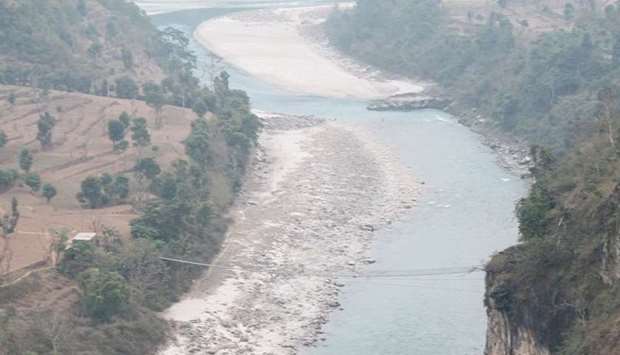Nepal has signed an agreement with a Chinese company to build the largest hydroelectric plant in the impoverished landlocked country, which suffers from a chronic energy shortage.
Nepal's energy minister Janardan Sharma on Sunday signed the agreement for the China Gezhouba Group Corporation (CGGC) to build the long-mooted 1,200 megawatt Budhi-Gandaki hydroelectric project.
Estimates put the project cost at $2.5 billion. A financing agreement will be signed later, ministry spokesman Dinesh Kumar Ghimire told AFP.
Water-rich Nepal has a mountain river system that could make it an energy-producing powerhouse, but instead it imports much of its electricity from neighbouring India.
Experts say it could be generating 83,000 megawatts, but its total installed generation capacity currently stands at less than two percent of that.
Demand for electricity has long outstripped supply in Nepal due to chronic under-investment and inefficiencies in the power network.
The result has been crippling for domestic industry and deterred foreign investment. Crucial infrastructure development has flagged in the years of political paralysis that followed the end of the Maoist insurgency in 2006 and the overthrow of the monarchy two years later.
India and China have vied for influence in the small country, with both pumping money into Nepal through large-scale infrastructure projects.
CGGC is currently building three smaller hydropower plants in Nepal and has completed another one, though critics have complained that the projects have consistently run over time and over budget.
Nepal's government is also currently building a 750 megawatt plant with China's backing.
Meanwhile, construction of two large India-backed projects -- each with a price tag of over $1 billion -- is expected to begin later this year after years of delays.

